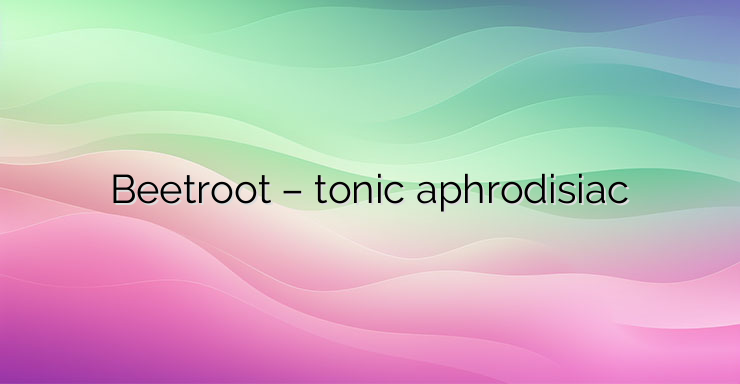The dark red roots of beetroot are popular in Bulgaria, as additions to soups and salads. Its health benefits are indisputable, but which are the most pronounced of them? Known as the “Viagra of the garden”, beetroot has been used since ancient times as a stimulant of sexual function. The vegetable is extremely rich in nitrates and helps to release nitric oxide in the blood, which dilates blood vessels and increases its circulation to the genitals – a property underlying the mechanism of action of Viagra. Another factor for this beetroot benefit is the presence of the element boron, which has an important role in the formation of sex hormones. Beetroot, however, should not be overdone – due to its richness in soluble fiber, it acts as a laxative, and although it is useful for constipation, its excessive consumption without need can lead to stomach disorders. The red color of the vegetable is due to the iron in it – a vital element for the body, a building block of hemoglobin, a protein that carries oxygen and nutrients in our blood. The high content of iron in red beets makes it a suitable food for those suffering from anemic diseases or chronic fatigue, giving tone and energy. Pregnant women also benefit from this seemingly simple vegetable – due to its enviable folic acid content. It is vital for the development of the embryo and protects against severe deformations of the neural tube, which are often fatal. Another useful ingredient is tryptophan, which is useful for nerve and brain tissue. Although beneficial for pregnancy, the expectant mother should proceed judiciously with the consumption of beets due to the possibility of the presence of a higher amount of nitrates. NEWS_MORE_BOX According to the Reference Daily Intake (RDI) of the World Health Organization, 130 grams of raw beetroot contains: folates – 37% of the RDI; manganese – 22.5%; fiber – 15.5%; potassium – 12.6%; vitamin C – 11.1%; tryptophan; iron – 10%; magnesium – 7.8%; phosphorus – 5.4%; copper – 5.5%; calories – 3%; It is important to note that between 10% and 25% of adults, after consuming beetroot, may develop beeturia – passing urine with a pronounced red color. Although the condition is not dangerous in itself, it can be an indicator of disorders in iron metabolism and is more likely to develop in people with too much or too little iron or in people with an undiagnosed early stage of porphyria, a disease of the liver, in which not enough hemoglobin is produced. If red urine is present after normal consumption of beets, this should not be a cause for concern, but experts advise not to ignore this sign and to consult a hematologist.


Leave a Reply